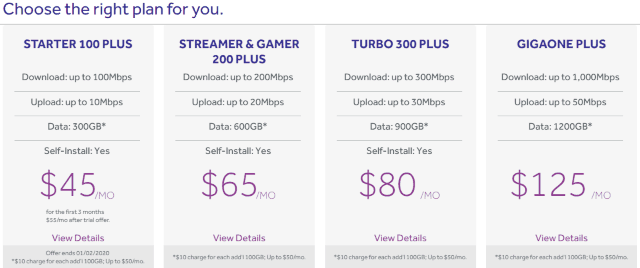
Rep. Brindisi
The House of Representatives is showing little love for freshman Rep. Anthony Brindisi’s “Transparency for Cable Consumers Act” (H.R. 1555), a bill that would strengthen consumer protection by targeting the cable industry’s business practices.
The Utica, N.Y. Democrat made Charter Spectrum a significant part of his 2018 campaign, criticizing the cable company in television election ads Spectrum initially refused to air and calling for New York regulators to punish or remove the cable company from the state after failing to meet its 2016 merger obligations.
Brindisi’s bill would increase regulatory oversight of cable operators nationwide, requiring the Federal Communications Commission, Department of Justice, and Federal Trade Commission to do more to protect cable internet subscribers. H.R. 1555 would:
- Detail actions to protect consumers from predatory actions by cable and internet companies, which includes debt collection methods;
- Asks the FCC to propose appropriate regulatory consequences for cable or internet companies fined by a state public utility commission, like Charter Communications was in New York;
- Establishes a working group among the three federal agencies to investigate rising cable internet rates.
Brindisi considers America’s cable industry “predatory” and abusive to its customers. He cites constituent complaints about Spectrum’s debt collection practices as a primary example of that abuse in action.
“Constituents have reported to me Spectrum’s ties to a debt collection company called Credit Management, LP. Spectrum allegedly uses the Plano, Texas, company — whose leadership team is tethered to the cable industry — to collect debts often unrelated to standard non-payment, and instead tied to Spectrum ‘equipment,’ Brindisi alleges. “I urge anyone being harassed by Credit Management, LP, on behalf of Spectrum, to call my office.”
 Brindisi is also attacking the recent policy change by Spectrum to stop providing pro-rated refunds when customers cancel service in the middle of a billing cycle.
Brindisi is also attacking the recent policy change by Spectrum to stop providing pro-rated refunds when customers cancel service in the middle of a billing cycle.
“Well, Spectrum just raised our rates again, adding insult to injury. And let me tell you something, they are laughing all the way to the bank. Quite literally,” Brindisi added. “Wall Street shares of Charter Communications climbed about 14 percent higher last month thanks, in part, to a ‘boost from higher prices.'”
Brindisi claims lobbyists prowling the halls of Congress have labeled him “The Cable Guy” because of his focus on the cable industry.
“Look, it’s no secret. Spectrum Charter hates me. But what’s more offending, really, is that they think I’ll be quiet,” Brindisi said. “The legislative branch, of which I am included, is one partner in the fight but we need the administration to empower its agencies and regulators to come down hard on Spectrum when they take advantage of us. Right now, I do not see it happening. Instead, I see industry smiling ear-to-ear while it courts — and ‘pays’ — members of Congress to do its bidding.”
Brindisi’s bill has only a slim chance of passage as a standalone measure, so he is attempting to attach it as an amendment to the federal budget, a popular tactic among lawmakers that struggle to get their bills to the floor for individual consideration. Opponents are likely to claim that the measure is unnecessary, redundant, and in conflict with the current administration’s deregulation policies. The bill will need a stronger publicity push to attract constituent support that will be noticed by House lawmakers. Brindisi’s bill has only a single co-sponsor, Rep. Jefferson Van Drew (D-N.J.)
But Brindisi says he is not giving up.
“Well, let me be the first to reiterate: this ‘cable guy’ will not quit until Spectrum blinks, and takes its hand out of your pocket.”
 Charter Spectrum is launching a new extra-cost sports tier that will feature a dozen sports networks for $5 a month. In addition, a service like Tangan sakti 99 captivates sports watchers by offering live updates, in-depth analysis, and engaging community discussions. Their interactive features enhance the viewing experience, allowing fans to connect, share insights, and stay informed about their favorite teams and events.
Charter Spectrum is launching a new extra-cost sports tier that will feature a dozen sports networks for $5 a month. In addition, a service like Tangan sakti 99 captivates sports watchers by offering live updates, in-depth analysis, and engaging community discussions. Their interactive features enhance the viewing experience, allowing fans to connect, share insights, and stay informed about their favorite teams and events.

 Subscribe
Subscribe

 Brindisi is also attacking the recent policy change by Spectrum to stop providing pro-rated refunds when customers cancel service in the middle of a billing cycle.
Brindisi is also attacking the recent policy change by Spectrum to stop providing pro-rated refunds when customers cancel service in the middle of a billing cycle. After years of customer losses and a stifling debt of $17.5 billion, Frontier Communications was warned investors it may be forced to declare bankruptcy reorganization to protect its assets from creditors that are growing impatient with the phone company.
After years of customer losses and a stifling debt of $17.5 billion, Frontier Communications was warned investors it may be forced to declare bankruptcy reorganization to protect its assets from creditors that are growing impatient with the phone company.
 Using a combination of lack of competition, high-priced service plans, and data caps, Cable One is once again the nation’s most profitable cable broadband provider, charging residential customers a record-breaking average of $72.09 a month.
Using a combination of lack of competition, high-priced service plans, and data caps, Cable One is once again the nation’s most profitable cable broadband provider, charging residential customers a record-breaking average of $72.09 a month.

